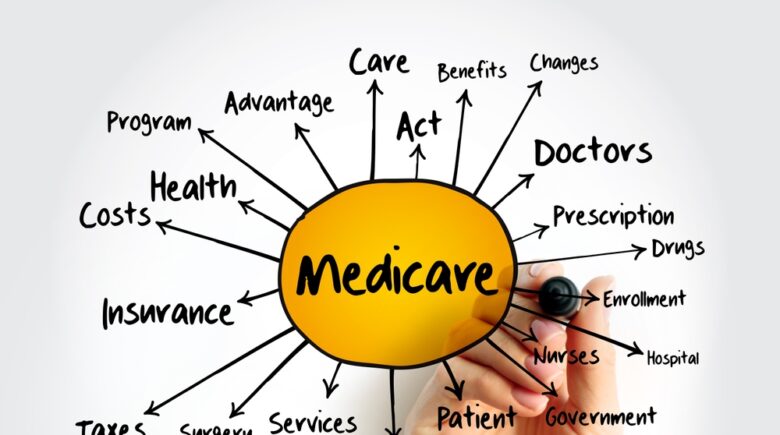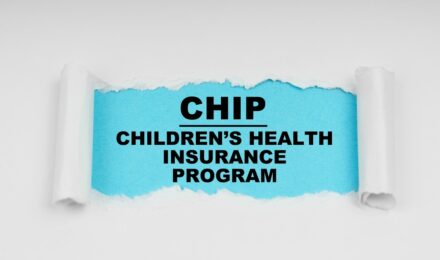Contents
- 1 Preventive Care Services
- 2 Mental Health and Substance Abuse Services
- 3 Home Health Care and Hospice Services
- 4 Caregiver Support
- 5 Health Promotion and Disease Prevention Programs
- 6 Transportation and Meal Delivery Services
- 7 Addressing Social Determinants of Health
- 8 Innovative Care Models
- 9 Future Directions for Medicare Benefits
- 10 The Role of Technology in Enhancing Medicare Benefits
- 11 Patient-Centered Care Initiatives
- 12 Empowering Beneficiaries Through Education
- 13 Conclusion
- 14 Sources
Medicare provides essential healthcare coverage for millions of Americans, but many beneficiaries are unaware of the full range of benefits available to them. Beyond routine medical services, Medicare covers various lesser-known benefits that can significantly enhance overall well-being. Understanding these hidden benefits can help beneficiaries make the most of their coverage and improve their quality of life.
Preventive Care Services
Medicare recognizes the importance of preventive care in maintaining good health. In addition to routine check-ups and screenings, Medicare covers various preventive services, including nutrition counseling, depression screening, and cardiovascular risk reduction programs. These services enable beneficiaries to identify potential health issues early on and take proactive steps to mitigate risks.
Mental Health and Substance Abuse Services
Medicare acknowledges the critical role mental health plays in overall well-being. Beneficiaries have access to mental health services, including counseling, therapy, and psychiatric care. Additionally, Medicare covers substance abuse treatment, including detoxification, counseling, and medication-assisted treatment. These services provide vital support for beneficiaries struggling with mental health or addiction issues. [1]
Home Health Care and Hospice Services
For beneficiaries requiring ongoing care or end-of-life support, Medicare provides comprehensive home health care and hospice services. These services enable individuals to receive necessary care in the comfort of their own homes, surrounded by loved ones. Home health care services include skilled nursing, physical therapy, and occupational therapy, while hospice care focuses on pain management and emotional support.
Caregiver Support
Medicare recognizes the vital role caregivers play in supporting beneficiaries. Respite care, caregiver training, and counseling services are available to help caregivers manage their responsibilities and maintain their own well-being. These services provide essential support, enabling caregivers to continue providing high-quality care. [2]
Health Promotion and Disease Prevention Programs
Medicare offers various health promotion and disease prevention programs aimed at promoting healthy lifestyles and reducing disease risk. These programs include fitness classes, smoking cessation programs, and chronic disease management workshops. By participating in these programs, beneficiaries can develop healthy habits and reduce their risk of developing costly chronic conditions.
Transportation and Meal Delivery Services
For beneficiaries with mobility issues or difficulty accessing medical services, Medicare provides transportation assistance. Additionally, meal delivery services are available for those struggling with nutrition or meal preparation. These practical services enable beneficiaries to maintain their independence and access necessary medical care. [3]
Addressing Social Determinants of Health
Medicare’s little-known benefits also address social determinants of health, recognizing that factors beyond medical care significantly impact overall well-being. For instance, Medicare’s Housing Assistance Program helps beneficiaries access affordable housing, while the Supplemental Nutrition Assistance Program (SNAP) provides food assistance. By addressing these fundamental needs, Medicare acknowledges the interconnectedness of health and social well-being.
Innovative Care Models
Medicare is exploring innovative care models that prioritize prevention, coordination, and patient-centered care. The Medicare Care Coordination Program, for example, enables healthcare providers to work together to deliver comprehensive, coordinated care. Additionally, Medicare’s Accountable Care Organizations (ACOs) incentivize providers to deliver high-quality, cost-effective care. These innovative models aim to improve health outcomes, enhance patient satisfaction, and reduce healthcare costs.
Future Directions for Medicare Benefits
As Medicare continues to evolve, policymakers are considering expansions to existing benefits and introduction of new services. Potential areas of focus include expanded mental health services, increased support for caregivers, and enhanced coordination between healthcare providers. Furthermore, initiatives aimed at addressing health disparities and promoting health equity are gaining traction. By building on Medicare’s foundation and addressing emerging healthcare needs, policymakers can ensure this vital program remains a cornerstone of American healthcare for generations to come.
The Role of Technology in Enhancing Medicare Benefits
The integration of technology is revolutionizing Medicare benefits, enhancing accessibility, efficiency, and patient engagement. Telehealth services, for instance, enable beneficiaries to access medical care remotely, reducing barriers to care for rural or mobility-impaired individuals. Additionally, electronic health records (EHRs) facilitate seamless communication between healthcare providers, improving care coordination and reducing medical errors. Medicare’s Blue Button initiative also empowers beneficiaries to access and manage their health information online.
Patient-Centered Care Initiatives
Medicare is shifting towards patient-centered care, prioritizing individualized care plans and personalized support. The Medicare Annual Wellness Visit (AWV) encourages beneficiaries to engage in proactive health planning, while care coordination programs focus on addressing unique patient needs. Furthermore, Medicare’s Patient-Centered Medical Home (PCMH) model rewards healthcare providers for delivering comprehensive, patient-focused care. By emphasizing patient-centered care, Medicare aims to improve health outcomes, enhance patient satisfaction, and foster meaningful relationships between beneficiaries and healthcare providers.
Empowering Beneficiaries Through Education
Educating beneficiaries about Medicare’s little-known benefits is crucial for improving health outcomes and reducing healthcare disparities. By spreading awareness and streamlining access to these benefits, we can empower beneficiaries to take control of their health and well-being. As healthcare continues to evolve, understanding Medicare’s comprehensive benefits will remain essential for fostering a healthier, more resilient community.
Conclusion
Medicare’s little-known benefits offer a wealth of opportunities for beneficiaries to enhance their health, well-being, and quality of life. By understanding these hidden benefits, beneficiaries can make informed decisions about their care and maximize their Medicare coverage. Healthcare providers, patient advocates, and community organizations must promote awareness about these benefits, ensuring beneficiaries receive the comprehensive support they deserve.
Sources
- FAQs on Mental Health and Substance Use Disorder Coverage in Medicare | KFF
- CDPAP IF LP – Google Ads FCG – Paid Family Caregiver in NY • CDPAP NY
- Medicare Coverage of Meal Delivery Programs for Seniors | MedicareFAQ
Contents
- 1 Preventive Care Services
- 2 Mental Health and Substance Abuse Services
- 3 Home Health Care and Hospice Services
- 4 Caregiver Support
- 5 Health Promotion and Disease Prevention Programs
- 6 Transportation and Meal Delivery Services
- 7 Addressing Social Determinants of Health
- 8 Innovative Care Models
- 9 Future Directions for Medicare Benefits
- 10 The Role of Technology in Enhancing Medicare Benefits
- 11 Patient-Centered Care Initiatives
- 12 Empowering Beneficiaries Through Education
- 13 Conclusion
- 14 Sources
Medicare provides essential healthcare coverage for millions of Americans, but many beneficiaries are unaware of the full range of benefits available to them. Beyond routine medical services, Medicare covers various lesser-known benefits that can significantly enhance overall well-being. Understanding these hidden benefits can help beneficiaries make the most of their coverage and improve their quality of life.
Preventive Care Services
Medicare recognizes the importance of preventive care in maintaining good health. In addition to routine check-ups and screenings, Medicare covers various preventive services, including nutrition counseling, depression screening, and cardiovascular risk reduction programs. These services enable beneficiaries to identify potential health issues early on and take proactive steps to mitigate risks.
Mental Health and Substance Abuse Services
Medicare acknowledges the critical role mental health plays in overall well-being. Beneficiaries have access to mental health services, including counseling, therapy, and psychiatric care. Additionally, Medicare covers substance abuse treatment, including detoxification, counseling, and medication-assisted treatment. These services provide vital support for beneficiaries struggling with mental health or addiction issues. [1]
Home Health Care and Hospice Services
For beneficiaries requiring ongoing care or end-of-life support, Medicare provides comprehensive home health care and hospice services. These services enable individuals to receive necessary care in the comfort of their own homes, surrounded by loved ones. Home health care services include skilled nursing, physical therapy, and occupational therapy, while hospice care focuses on pain management and emotional support.
Caregiver Support
Medicare recognizes the vital role caregivers play in supporting beneficiaries. Respite care, caregiver training, and counseling services are available to help caregivers manage their responsibilities and maintain their own well-being. These services provide essential support, enabling caregivers to continue providing high-quality care. [2]
Health Promotion and Disease Prevention Programs
Medicare offers various health promotion and disease prevention programs aimed at promoting healthy lifestyles and reducing disease risk. These programs include fitness classes, smoking cessation programs, and chronic disease management workshops. By participating in these programs, beneficiaries can develop healthy habits and reduce their risk of developing costly chronic conditions.
Transportation and Meal Delivery Services
For beneficiaries with mobility issues or difficulty accessing medical services, Medicare provides transportation assistance. Additionally, meal delivery services are available for those struggling with nutrition or meal preparation. These practical services enable beneficiaries to maintain their independence and access necessary medical care. [3]
Addressing Social Determinants of Health
Medicare’s little-known benefits also address social determinants of health, recognizing that factors beyond medical care significantly impact overall well-being. For instance, Medicare’s Housing Assistance Program helps beneficiaries access affordable housing, while the Supplemental Nutrition Assistance Program (SNAP) provides food assistance. By addressing these fundamental needs, Medicare acknowledges the interconnectedness of health and social well-being.
Innovative Care Models
Medicare is exploring innovative care models that prioritize prevention, coordination, and patient-centered care. The Medicare Care Coordination Program, for example, enables healthcare providers to work together to deliver comprehensive, coordinated care. Additionally, Medicare’s Accountable Care Organizations (ACOs) incentivize providers to deliver high-quality, cost-effective care. These innovative models aim to improve health outcomes, enhance patient satisfaction, and reduce healthcare costs.
Future Directions for Medicare Benefits
As Medicare continues to evolve, policymakers are considering expansions to existing benefits and introduction of new services. Potential areas of focus include expanded mental health services, increased support for caregivers, and enhanced coordination between healthcare providers. Furthermore, initiatives aimed at addressing health disparities and promoting health equity are gaining traction. By building on Medicare’s foundation and addressing emerging healthcare needs, policymakers can ensure this vital program remains a cornerstone of American healthcare for generations to come.
The Role of Technology in Enhancing Medicare Benefits
The integration of technology is revolutionizing Medicare benefits, enhancing accessibility, efficiency, and patient engagement. Telehealth services, for instance, enable beneficiaries to access medical care remotely, reducing barriers to care for rural or mobility-impaired individuals. Additionally, electronic health records (EHRs) facilitate seamless communication between healthcare providers, improving care coordination and reducing medical errors. Medicare’s Blue Button initiative also empowers beneficiaries to access and manage their health information online.
Patient-Centered Care Initiatives
Medicare is shifting towards patient-centered care, prioritizing individualized care plans and personalized support. The Medicare Annual Wellness Visit (AWV) encourages beneficiaries to engage in proactive health planning, while care coordination programs focus on addressing unique patient needs. Furthermore, Medicare’s Patient-Centered Medical Home (PCMH) model rewards healthcare providers for delivering comprehensive, patient-focused care. By emphasizing patient-centered care, Medicare aims to improve health outcomes, enhance patient satisfaction, and foster meaningful relationships between beneficiaries and healthcare providers.
Empowering Beneficiaries Through Education
Educating beneficiaries about Medicare’s little-known benefits is crucial for improving health outcomes and reducing healthcare disparities. By spreading awareness and streamlining access to these benefits, we can empower beneficiaries to take control of their health and well-being. As healthcare continues to evolve, understanding Medicare’s comprehensive benefits will remain essential for fostering a healthier, more resilient community.
Conclusion
Medicare’s little-known benefits offer a wealth of opportunities for beneficiaries to enhance their health, well-being, and quality of life. By understanding these hidden benefits, beneficiaries can make informed decisions about their care and maximize their Medicare coverage. Healthcare providers, patient advocates, and community organizations must promote awareness about these benefits, ensuring beneficiaries receive the comprehensive support they deserve.






